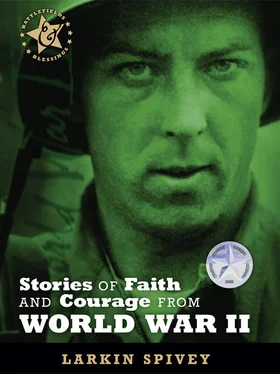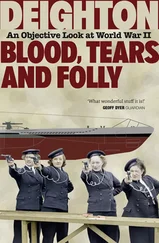On December 8th the United States declared war on Japan. Japan’s allies, Germany and Italy, immediately declared war on the United States. America found herself facing adversaries with powerful and effective military forces, victorious so far on all fronts. In the Pacific the Japanese Fleet was superior in every category. Three American aircraft carriers faced an overwhelming naval force of ten carriers, well-trained veteran aircrews, and superior aircraft. The United States Army, numbering only one hundred ninety thousand in 1939, was frantically expanding for war.
Almost simultaneously with the Pearl Harbor strike, Japanese attacks were launched against Wake Island, Guam, the Philippines, Thailand, Malaya, and the Gilbert Islands. All fell before the onslaught. In early March 1942 the conquest of Java and the Dutch East Indies was complete. Japan had accomplished all her immediate war aims in half the planned time and with virtually no naval losses.
Desperate for some success, the U.S. Navy carried out a daring strike of its own on April 18. The carrier Hornet took sixteen B-25 bombers into Japanese waters. Led by Jimmy Doolittle, the American airmen bombed Tokyo and other Japanese cities. The minimal damage inflicted caused a furor within the Japanese high command, which was disgraced for allowing such a strike against the homeland. Strategically, the Japanese had to face the need for defense of their home waters for the first time.
In June a vast Japanese armada of more than two hundred ships and seven hundred aircraft returned to the central Pacific to finish the job started at Pearl Harbor. The objective was destruction of America’s three remaining aircraft carriers, the last vestige of U.S. naval power in the Pacific. The stark contrast in forces made victory in this engagement as close to a sure thing as it is possible to achieve in war. The Japanese again came very close to achieving their aim.
On the morning of June 4 the opposing forces came within striking distance of each other north of Midway Island. Both sides employed heightened air search efforts to find the other side, but the Americans got the earliest sighting and launched their attacks. After an amazing sequence of events, U.S. dive-bombers found the Japanese carrier strike group and delivered fatal blows to four enemy carriers. Even though he still had superior forces on the scene, the Japanese commander ordered a full retirement. Japanese expansion in the Pacific had reached its limit.
February 1
The President Speaks

President Franklin D. Roosevelt (Franklin D. Roosevelt Presidential Library)
In his first inaugural address, President Franklin D. Roosevelt tried to provide reassurance and spiritual comfort to a troubled nation facing economic depression at home and military conflict abroad:
We face the arduous days that lie before us in the warm courage of national unity; with the clear consciousness of seeking old and precious moral values; with the clean satisfaction that comes from the stern performance of duty by old and young alike. We aim at the assurance of a rounded, a permanent national life.
We do not distrust the future of essential democracy. The people of the United States have not failed. In their need they have registered a mandate that they want direct, vigorous action. They have asked for discipline and direction under leadership. They have made me the present instrument of their wishes. In the spirit of the gift I take it.
In this dedication of a Nation we humbly ask the blessing of God. May He protect each and every one of us. May He guide me in the days to come. 45
Roosevelt was a lifelong Episcopalian, baptized in St. James Church at Hyde Park, New York. He served as a vestryman and senior warden. Like many Episcopalians he was very personal in his faith. He once said, “I can do almost anything in the ‘Goldfish Bowl’ of the president’s life, but I’ll be hanged if I can say my prayers in it…” 46Nevertheless, in crucial times he turned the focus of the nation toward God, his own ultimate source of guidance and protection. While none of us may ever confront the weight of responsibility carried by Franklin Roosevelt, we have equal access to God and the same source of strength that sustained the president and America during the dark days before and during World War II.
I lift up my eyes to the hills where does my help come from? My help comes from the Lord, The Maker of heaven and earth.
—Psalm 121:1–2
February 2
Public Reaction
War came suddenly and unexpectedly in the Pacific. Pearl Harbor was an attack without warning launched even before war had been declared. The first public reaction was utter outrage. All the leaders and politicians called for unity. In its December 15, 1941, issue, Time magazine tried to capture the public mood. What was happening in America? Behind the initial outburst of emotion there seemed to be evidence of an underlying calmness and determination:
At the docks in San Diego, as the afternoon wore on, a crowd slowly grew. There were a few people, then more, then a throng, looking intently west across the harbor, beyond Point Loma, out to the Pacific where the enemy was. There was no visible excitement, no hysteria, and no release in words for the emotions behind the grim, determined faces.
In every part of the U.S. the terse, inadequate words gave outward and visible signs of the unfinished emotions within. Many just said, “Well, it’s here.” Sometimes they had nothing at all to say.
Thus the U.S. met the first days of war. It met them with incredulity and outrage, with a quick, harsh, nationwide outburst that swelled like the catalogue of some profane Whitman. It met them with a deepening sense of gravity and a slow, mounting anger. But there were still no words to express emotions pent up in silent people listening to radios, reading papers, taking trains. But the U.S. knew that its first words were not enough. 47
Quiet determination reveals a depth of character and commitment not usually revealed by outward displays of emotion. Americans have always identified with the phrase, “Actions speak louder than words.” In December 1941 this trait began to show itself among the American people. This national characteristic has specific biblical roots. Scripture enjoins us to pay more attention to what we do than what we say.
If anyone has material possessions and sees his brother in need but has no pity on him, how can the love of God be in him? Dear children, let us not love with words or tongue but with actions and in truth.
—1 John 3:17–18
February 3
I Joined to See the World
Joe Morgan didn’t expect to be in a war when he joined the Navy as a teenager. “I joined up to see the world, not fight a war,” he said. “When the attack started I was scared and looked for a place to hide.” 48Morgan was at the airfield on Ford Island when the Japanese struck. Inside a hangar he found an I-beam to hide beneath. From his position of relative safety, he began to observe others outside the hanger firing back at the enemy airplanes: “Here I was, a trained gunner hiding in an I-beam and I began to feel ashamed of myself. The shame overpowered my fear. I went into the armory and grabbed a machine gun to fight back.” 49
Fear is an understandable reaction to confusion and danger. However, this sailor and many others rose above it to do their duty, often courageously. In our daily lives we usually do not have to be heroes. However, it does take courage to admit our mistakes and to ask for forgiveness. It often takes courage to commit to a relationship, and to stick with it. It may even take courage for some to get up in the morning. An article in my Bible gives this insight: “Courage isn’t only for heroes… Because we have Jesus Christ behind us all his love, power, and wisdom we can afford to be brave. For Christians, this life is about living in God’s strength.” 50
Читать дальше













